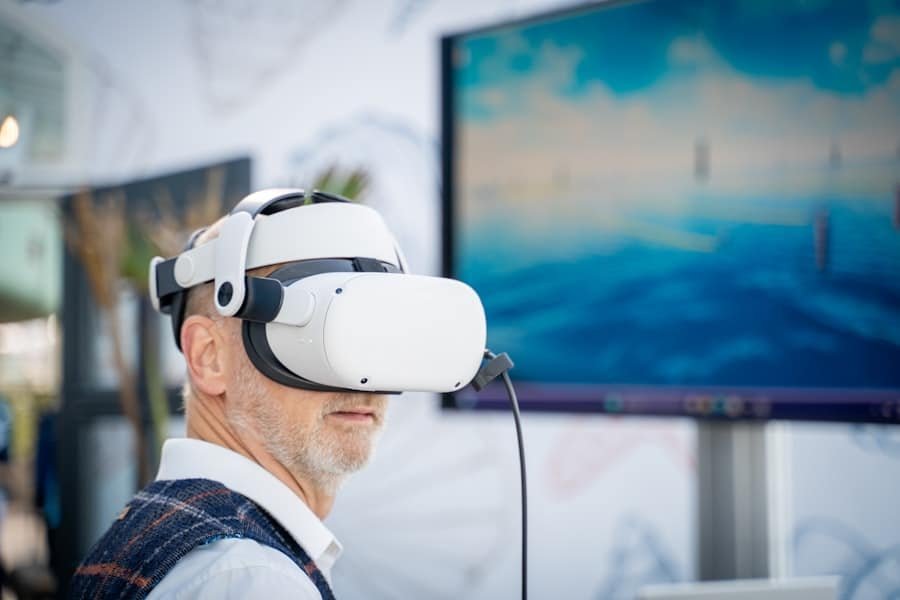The concept of the metaverse has evolved significantly over the past few years, transitioning from a mere speculative idea to a tangible digital environment that is increasingly becoming part of everyday life. At its core, the metaverse is a collective virtual space that merges physical and digital realities, allowing users to interact with each other and their surroundings in real-time. This immersive environment is not limited to a single platform; rather, it encompasses a multitude of interconnected virtual worlds, augmented reality experiences, and digital economies.
The metaverse is often characterised by its persistent nature, meaning that it continues to exist and evolve even when users are not actively engaged. One of the most compelling aspects of the metaverse is its potential for social interaction. Users can create avatars that represent them in these virtual spaces, enabling them to engage with others in ways that transcend geographical boundaries.
This social dimension is further enhanced by the integration of various technologies, such as blockchain, which facilitates ownership and trade of digital assets. As more individuals and businesses begin to explore the metaverse, it becomes increasingly clear that this digital frontier is not merely a passing trend but rather a fundamental shift in how we perceive and interact with the world around us.
Summary
- The metaverse is a collective virtual shared space, created by the convergence of virtually enhanced physical reality and physically persistent virtual reality.
- Metaverse marketing has the potential to revolutionise the way brands engage with consumers, offering immersive and interactive experiences.
- Brands can create immersive experiences in the metaverse by leveraging virtual reality and augmented reality technologies to engage with consumers in new and exciting ways.
- Navigating the challenges of metaverse marketing requires careful consideration of privacy, security, and ethical concerns, as well as the need to adapt to rapidly evolving technologies.
- Virtual reality and augmented reality offer brands the opportunity to create unique and memorable experiences for consumers, driving engagement and brand loyalty.
The Potential of Metaverse Marketing
As brands begin to recognise the vast potential of the metaverse, marketing strategies are evolving to harness this new digital landscape. The metaverse offers unique opportunities for brands to engage with consumers in ways that traditional marketing channels cannot replicate. For instance, immersive experiences can be crafted that allow users to interact with products in a virtual setting, providing a level of engagement that goes beyond passive consumption.
This interactivity can lead to deeper emotional connections between consumers and brands, fostering loyalty and encouraging word-of-mouth promotion. Moreover, the metaverse presents an opportunity for brands to tap into new revenue streams through virtual goods and services. Digital assets such as virtual clothing, accessories for avatars, or even real estate within virtual worlds can be monetised, creating a new economy that thrives on creativity and innovation.
Brands that successfully navigate this landscape can position themselves as pioneers in a burgeoning market, attracting attention and interest from consumers eager to explore these novel offerings. The potential for viral marketing campaigns also increases in the metaverse, as users share their experiences and creations within their networks, amplifying brand visibility.
Creating Immersive Brand Experiences

Creating immersive brand experiences in the metaverse requires a thoughtful approach that prioritises user engagement and interaction. Brands must consider how to design experiences that resonate with their target audience while also aligning with their brand identity. For example, a fashion brand might create a virtual runway show where users can attend as avatars, interact with models, and even purchase items directly from the show.
This not only provides entertainment but also creates a sense of exclusivity and urgency around the brand’s offerings. Another effective strategy is to incorporate gamification elements into brand experiences. By integrating game-like features such as challenges, rewards, and leaderboards, brands can encourage users to participate actively rather than passively consuming content.
For instance, a beverage company could develop a virtual scavenger hunt where users explore different environments to find hidden items related to the brand. This approach not only enhances user engagement but also fosters community building as participants share tips and experiences with one another.
Navigating the Challenges of Metaverse Marketing
While the metaverse offers exciting opportunities for brands, it also presents a unique set of challenges that must be navigated carefully. One significant concern is the issue of accessibility; not all consumers have access to the necessary technology or high-speed internet required to fully engage with metaverse experiences. Brands must consider how to create inclusive experiences that cater to diverse audiences while also addressing potential barriers to entry.
Additionally, privacy and data security are paramount concerns in the metaverse. As users engage with brands in these virtual spaces, they often share personal information that could be vulnerable to exploitation. Brands must prioritise transparency and ethical practices when collecting and using consumer data.
Establishing trust is essential for fostering long-term relationships with consumers in this new environment. Furthermore, brands should be prepared for potential backlash if they fail to address these concerns adequately.
Leveraging Virtual Reality and Augmented Reality
Virtual reality (VR) and augmented reality (AR) are two key technologies driving the growth of the metaverse and offering brands innovative ways to engage consumers. VR immerses users in entirely digital environments, allowing them to experience products and services in ways that were previously unimaginable. For instance, automotive companies can create VR showrooms where potential buyers can explore vehicles from every angle or even take them for a virtual test drive.
This level of immersion can significantly influence purchasing decisions by providing consumers with a more comprehensive understanding of the product. On the other hand, AR enhances the real world by overlaying digital information onto physical environments. Brands can leverage AR to create interactive experiences that blend seamlessly with everyday life.
For example, a cosmetics brand might develop an AR application that allows users to virtually try on makeup products before making a purchase. This not only enhances the shopping experience but also reduces the likelihood of returns, as consumers can make more informed decisions based on their virtual trials.
Engaging with a New Generation of Consumers

The rise of the metaverse is closely linked to the preferences and behaviours of younger generations, particularly Gen Z and millennials. These digital natives are accustomed to engaging with technology in immersive ways and are more likely to seek out brands that offer unique experiences rather than traditional advertising methods. To effectively engage this audience, brands must adopt a more authentic and transparent approach that resonates with their values.
Social media plays a crucial role in this engagement strategy. Platforms like TikTok and Instagram have already begun integrating elements of the metaverse into their offerings, allowing users to create and share content in immersive formats. Brands can leverage these platforms to reach younger consumers by collaborating with influencers who have established credibility within these communities.
By creating shareable content that encourages participation and interaction, brands can tap into the organic reach of social media while fostering a sense of community among their audience.
Building a Presence in Virtual Communities
Establishing a presence in virtual communities is essential for brands looking to thrive in the metaverse. These communities often serve as hubs for social interaction and collaboration, making them ideal environments for brands to connect with consumers on a deeper level. By participating in these spaces, brands can gain valuable insights into consumer preferences while also fostering relationships built on shared interests.
One effective way to engage with virtual communities is through sponsorships or partnerships with existing platforms or events within the metaverse. For instance, a gaming company might sponsor an esports tournament or collaborate with popular game developers to create branded content within their games. This not only increases brand visibility but also positions the brand as an integral part of the community’s culture.
Additionally, hosting events or experiences within these communities can further solidify a brand’s presence while providing value to participants.
The Future of Metaverse Marketing
As technology continues to advance and the metaverse evolves, the future of marketing within this space holds immense potential. Brands will need to remain agile and adaptable as consumer preferences shift and new platforms emerge. The integration of artificial intelligence (AI) into marketing strategies will likely play a significant role in personalising user experiences within the metaverse.
AI-driven analytics can provide insights into consumer behaviour, enabling brands to tailor their offerings more effectively. Furthermore, as more businesses enter the metaverse, competition will intensify, necessitating innovative approaches to stand out from the crowd. Brands that prioritise creativity and authenticity will be better positioned to capture consumer attention in this dynamic landscape.
The future may also see increased collaboration between brands across different industries, leading to unique cross-promotional opportunities that enhance user experiences while expanding brand reach. In conclusion, while challenges exist within this new frontier, the potential for growth and engagement is unparalleled. As brands continue to explore the possibilities offered by the metaverse, they will undoubtedly shape the future of marketing in ways we have yet to fully comprehend.
Metaverse Marketing is a cutting-edge strategy that is revolutionizing the way businesses connect with consumers in virtual worlds. As discussed in a recent article on Biden’s economic policy in 2024: achievements and challenges ahead, the metaverse presents a unique opportunity for companies to engage with customers in immersive and interactive ways. By leveraging this technology, businesses can create virtual experiences that drive brand awareness and loyalty. In order to navigate the complexities of this new marketing landscape, it is crucial for companies to work with the right partners, as highlighted in the article on finding the right broker: why it’s all about your needs. By understanding the potential of the metaverse and partnering with experts in the field, businesses can stay ahead of the curve and unlock new opportunities for growth.
FAQs
What is Metaverse Marketing?
Metaverse marketing refers to the practice of promoting and advertising products or services within virtual reality (VR) and augmented reality (AR) environments. It involves creating immersive and interactive experiences for consumers within the metaverse, a collective virtual shared space.
How does Metaverse Marketing work?
Metaverse marketing works by leveraging VR and AR technologies to create virtual environments where brands can engage with consumers in new and innovative ways. This can include virtual product demonstrations, interactive brand experiences, and virtual events within the metaverse.
What are the benefits of Metaverse Marketing?
The benefits of metaverse marketing include the ability to create unique and memorable brand experiences, reach a tech-savvy audience, and differentiate from competitors. It also allows for global reach and the potential for viral marketing within virtual communities.
What industries can benefit from Metaverse Marketing?
Various industries can benefit from metaverse marketing, including retail, entertainment, gaming, real estate, education, and fashion. Any business looking to engage with consumers in a more immersive and interactive way can explore metaverse marketing opportunities.
What are some examples of Metaverse Marketing campaigns?
Examples of metaverse marketing campaigns include virtual fashion shows, immersive product launches in VR environments, branded virtual spaces within popular VR platforms, and interactive experiences within AR apps. These campaigns aim to create a strong brand presence within the metaverse.
